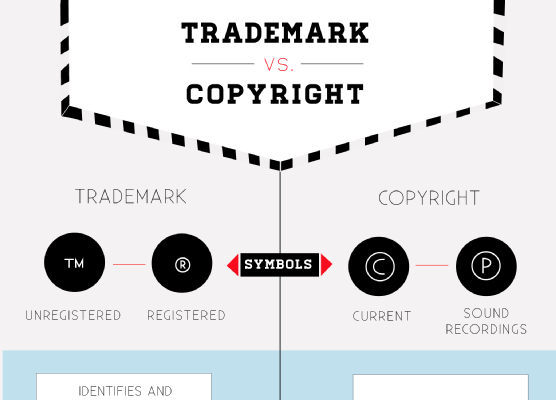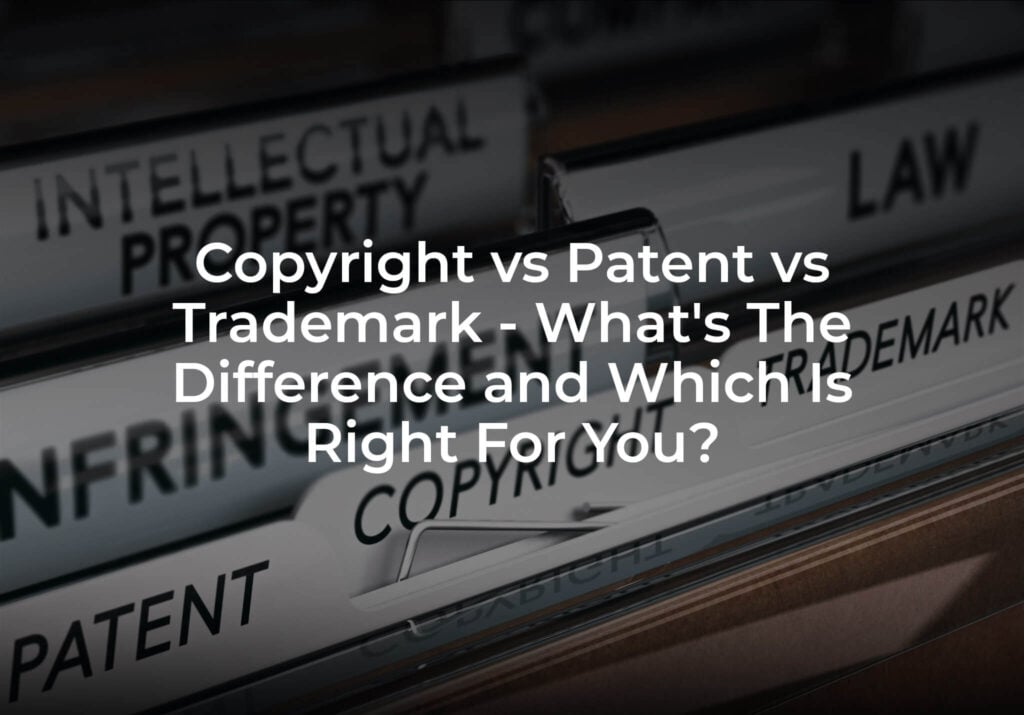Trademarks vs. copyrights: Which one is right for you?
by Admin
Posted on 07-06-2024 03:44 PM

Intellectual property can be a tricky field to understand, but navigating it properly can mean the difference between waging a vicious court battle to protect your legal interests and quietly enjoying the fruits of your creative labors.
 Two of the most frequently confused intellectual property rights are copyrights and trademarks. If you are in the business of creating unique goods for placement in the stream of commerce, it is essential that you understand the difference between the two.
Two of the most frequently confused intellectual property rights are copyrights and trademarks. If you are in the business of creating unique goods for placement in the stream of commerce, it is essential that you understand the difference between the two.
Copyrights and trademarks are both forms of intellectual property. , which is a mental creation that has value to a business. In addition to copyrights, trademarks, and service marks, intellectual property includes patents. From an accounting standpoint, because this intellectual property has value, it is considered an intangible asset (with no physical form) and ip can be bought and sold, or its use can be licensed, (sold to someone to use it).
Copyrights and trademarks defined
Trademark and copyright are both forms of intellectual property, which can be defined as intangible assets, in other words, creations of the mind—such as inventions, literary and artistic works, designs, symbols, names and images used in commerce. When it comes to intellectual property for businesses, this can largely encompass any business ideas, as well as works or processes that come from those ideas. This being said, in the u. S. , trademarks and copyrights, as well as patents, are used to legally protect intellectual property.
 The main difference, therefore, between copyright vs. Trademark is that, although both offer intellectual property protection, they protect different types of assets and have different registration requirements.
The main difference, therefore, between copyright vs. Trademark is that, although both offer intellectual property protection, they protect different types of assets and have different registration requirements.
In the evolving landscape of intellectual property (ip), the demarcation between trademarks and copyrights is becoming increasingly nuanced. As digital technology advances, the traditional boundaries that once defined these two forms of ip protection are being reimagined. The proliferation of online content and the rise of artificial intelligence have prompted a reevaluation of ip laws, leading to trends and predictions that suggest a transformative future for ip rights management. 1. Integration of ai in ip management: artificial intelligence is poised to revolutionize how trademarks and copyrights are monitored and enforced. Ai algorithms can proactively detect potential infringements by scanning vast online platforms, thus streamlining the enforcement process.
Trademark application and review
The process of registering a trademark involves several key steps. Firstly, it's crucial to conduct a thorough search to ensure your proposed trademark doesn't infringe on existing trademarks. This search can be complex, but it's vital to avoid future legal complications. Once you're clear, you submit an application to the appropriate trademark office detailing the trademark and the goods or services it will represent. This application is then reviewed for compliance with legal requirements, including distinctiveness and non-deceptiveness. If approved, your trademark is published for opposition, allowing others a chance to challenge it if they believe it infringes on their rights.
A trademark protects a word, phrase, or design that identifies your goods or services and distinguishes those goods and services from those of your competitors, according to the u. S. Patent and trademark office. Think about the name coca-cola as the brand name for soft drinks or the swoosh as the logo for nike’s athletic brand. A copyright applies to artistic, literary, or intellectually created works, like movies, photos, paintings, music, and books. It must be something tangible that people can experience, read, see, hear, or touch. Think song lyrics to “rolling in the deep,” by adele. Trademarks prevent consumer confusion and protect your business name, saying, or logo from being used by others to sell goods or services.
Copyright, trademarks, patents, and trade secrets are all different types of intellectual property (ip). It is sometimes confusing to understand what exactly each type of ip protects. But understanding the differences between copyright, trademarks, patents, and trade secrets can help you understand how to best protect your works and enforce your rights. A brief description of these different forms of ip including a brief discussion of their differences from copyright, is provided below.